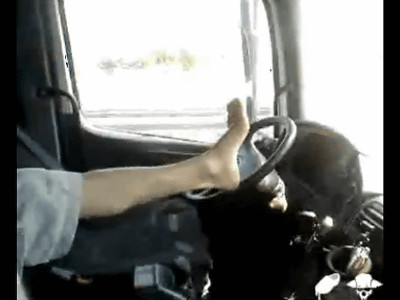How to control road rage when you get behind the wheel

There are quite a few people who are normally calm but become angry as soon as they get behind the wheel. A road safety expert explains how to suppress 'road rage,' angry behavior while driving.
Even calm people can fly into a rage behind the wheel. Here's how to curb your road rage – before it's too late
The reason why people get angry while driving is because they are physically separated from others. For example, if you bump into someone while walking, many people apologize because they are closer to others, but when you are in a car, the distance between you and others is greater, so your tolerance disappears and your feelings of anger increase.
Milad Haghani, an environmental engineering and urban risk analyst, said techniques derived from cognitive behavioral therapy may help people reduce their anger while driving.
- Understand that other drivers, cyclists, and pedestrians are strangers who you pass on the road.
Allow extra time for travel to reduce stress
Avoid ruminating on anger and replaying frustrating events in your mind, such as being cut off in traffic.
-Take a deep breath, distract yourself, or focus on something else
- Try to stay calm when other drivers are angry

Several studies have shown that, in general, people who become angrier while driving are more likely to engage in aggressive behavior and risky emotional behavior, which increases the likelihood of them being involved in an accident.
Research also suggests that while female drivers feel just as angry as their male counterparts, they are less likely to act out in a negative way, and that they do tend to feel more anger than men in certain situations, such as when they are subjected to unpleasant gestures or cut off.

Aggressive behaviour by drivers can vary widely, and an Australian insurance company surveyed 1,464 members and found that many had witnessed the following behaviour:
・Aggressive driving (71%)
Honking the horn (67%)
Drivers making angry gestures towards other drivers (60%)
Intentional interruption (58%)
Drivers getting out of their cars to argue with other drivers (14%)
・Stalking (10%)
Assault (4%)
A study by another insurance company found that triggers for road rage included being tailgated, being rude (such as not showing gratitude for letting someone pass), and witnessing dangerous driving.

'People who act calm in their daily lives can suddenly start tailgating, honking their horns, or yelling at strangers. Stress at work or home can suddenly erupt in righteous indignation towards others, but this type of road rage is dangerous because it increases the risk of accidents. Remember that in your everyday life you can forgive other people's minor carelessness, and bring that same patience to your driving,' said Hagani.
Related Posts:
in Vehicle, Posted by log1p_kr







